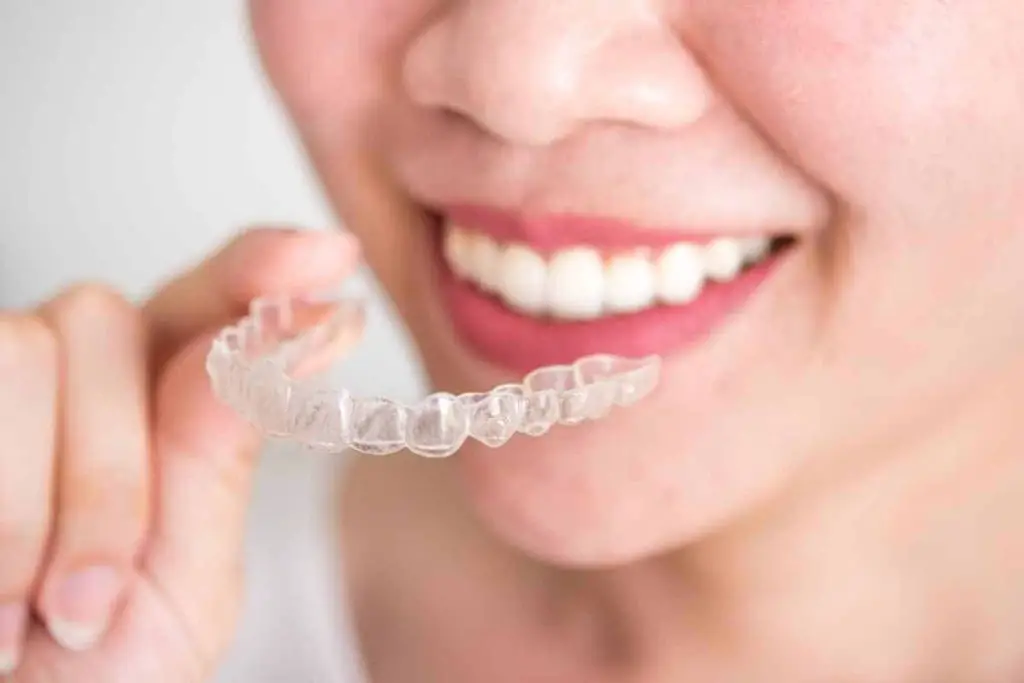If you or your child plays the clarinet, you may be concerned about whether they can play their instrument with braces or other dental appliances like Invisalign.
Fortunately, you can continue to play the clarinet in most of these situations!
This article will answer some frequently asked questions about special circumstances that may occur while you are playing the clarinet.
Table of Contents
1. Can You Play Clarinet With Braces Or A Retainer?

The inside of the chin and upper lip are often irritated by braces, especially in the first several months after they are applied.
You may want to encourage your child to use braces wax to compensate for some of the extra friction that playing the clarinet can cause in these areas.
To get used to playing the clarinet with braces, start with lower notes. Lower notes are easier to play, and they will help you gradually “break-in” your braces.
As you become accustomed to them, you can progress to higher notes!
You may want to consider playing with a softer reed since they require less pressure when playing. As you regain your embouchure strength, you can return to playing with a harder reed.
2. Can You Play Clarinet With Invisalign?
Yes, it is quite easy to play the clarinet with Invisalign or a clear plastic retainer. It should not affect your sound at all.
Just make sure that the retainer is kept clean and in good condition.
As with all braces, Invisalign can produce some pain in the gums, so be patient with yourself while you are playing and stop if it begins to hurt.
3. Can You Play Clarinet With A Tongue Or Lip Piercing?
Wind musicians do not recommend getting lip or tongue piercings. They can alter your embouchure (how you hold your mouth and facial muscles while playing) and cause you to have to relearn to play the clarinet.
That said, if you are determined to play after a lip piercing, it can be done. You will have to make sure that it is fully healed before attempting to play, or you can cause yourself a great deal of pain and set your recovery back.
A tongue piercing is actually less problematic than a lip piercing, though the recovery time is longer.
If you are not in the habit of tonguing properly and use the middle of your tongue to separate notes, the piercing will hit the reed. If you separate your notes properly with the tip of your tongue, you should be fine.
4. Can You Play Clarinet With False Teeth Or Dentures?
Many seniors continue to play the clarinet with dentures. It does take some getting used to, and you must make sure that you are using an excellent dental adhesive in the case of a full plate.
Partial plates cause some discomfort at first, but most clarinetists will work through this without any problems.
Talk to your dentist if you are experiencing any pain when trying to play the clarinet. They should be able to adjust your dentures.
5. Can You Play Clarinet With Long Or Fake Nails?
Musicians do not recommend attempting to play any woodwind instrument with excessively long nails. Long nails may affect your fingering speed and accuracy as well as limit your fingering options.
Ideally, clarinetists should hold their fingers at a slightly curved angle, and long nails may get in the way of doing this.
If you want to continue playing the clarinet, you can wear your nails shorter using natural or acrylic applications.
6. Can You Play Clarinet With Gloves On?
Unfortunately, it is very difficult to play the clarinet with gloves on. The fabric of the gloves can become caught in the keys and rings of the clarinet, meaning that you will miss many notes.
In addition, having gloves covering your fingers means that you will not achieve a proper seal on the tone holes, so you will not be able to get the right sound out of your instrument.
Marching band clarinetists frequently wear fingerless gloves for this reason.
7. Can You Play Clarinet With An Overbite?
Yes, you can play the clarinet well with an overbite. It may be slightly more difficult with an underbite since the jaw is not set at the proper angle for constructing your embouchure.
Does Playing Clarinet Give You An Overbite Over Time?
There is a popular misconception that playing a wind instrument like the clarinet can lead to an overbite.
Dental studies find that this is not the case! In fact, these studies find that when they are played properly, the clarinet and saxophone can actually reduce overbite by a slight amount over time.
Final Thoughts
I played the clarinet with braces for a few years in the 80s, and while it was somewhat difficult at first, it became easier after I built up more lip strength. Braces wax was also a huge help.
Most of my friends in middle school had braces or retainers at some point, and while there is a slight learning curve, they were all able to continue playing.
I would also like to add that if clarinetists are planning to have any oral surgery done such as wisdom teeth removal that they should plan for an extended recovery time.
Playing a wind instrument means a major increase in pressure inside your mouth, and you can set back oral surgery recovery times if you play too soon. I, unfortunately, learned about this the hard way.
Most of these special circumstances are compatible with playing the clarinet, though others are not. Gloves and long nails are probably the most problematic, followed by lip piercings.
If you are determined to succeed with the clarinet, you should be able to make most of these circumstances work.
Just make sure that you are not causing yourself any unnecessary pain or discomfort and be sure to keep in touch with your dentist and orthodontist.
Sources:
https://pocketdentistry.com/effects-of-playing-a-wind-instrument-on-the-occlusion/